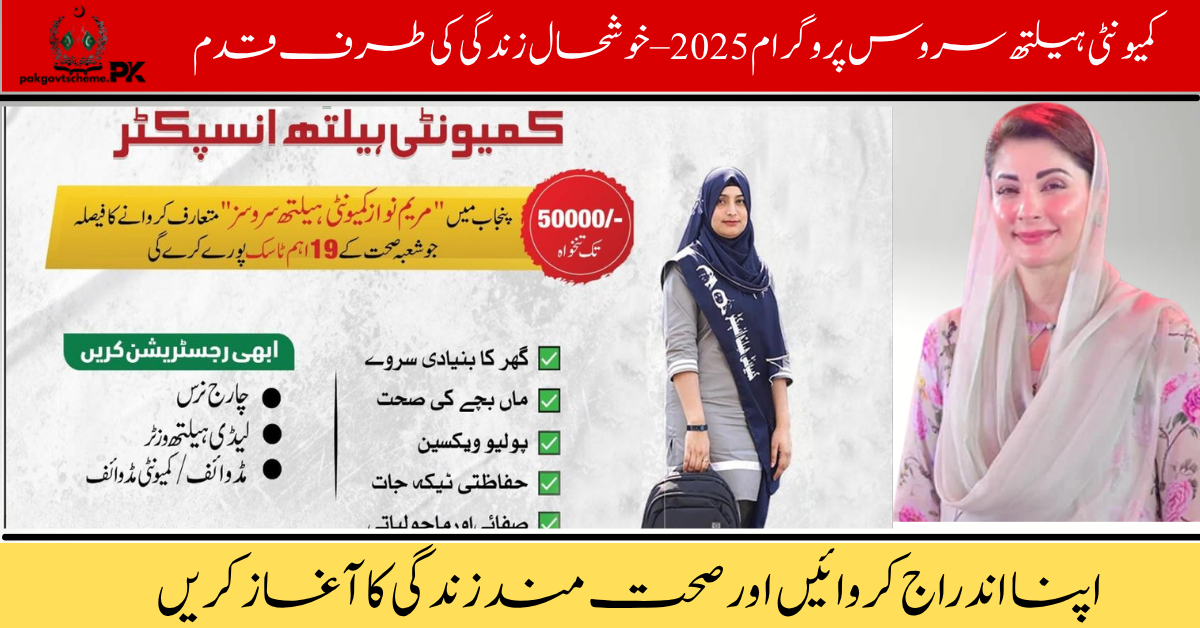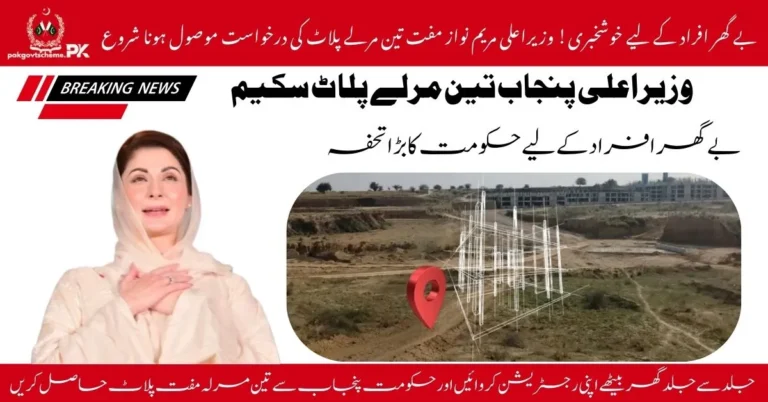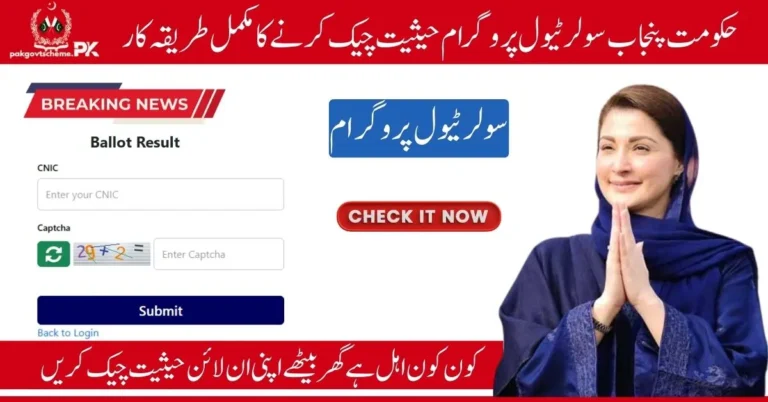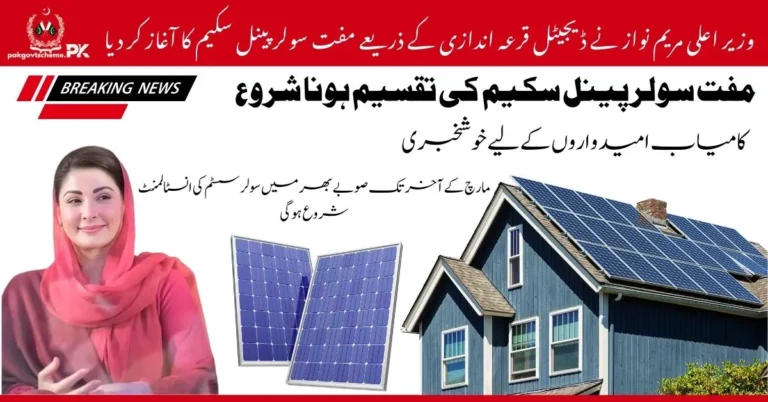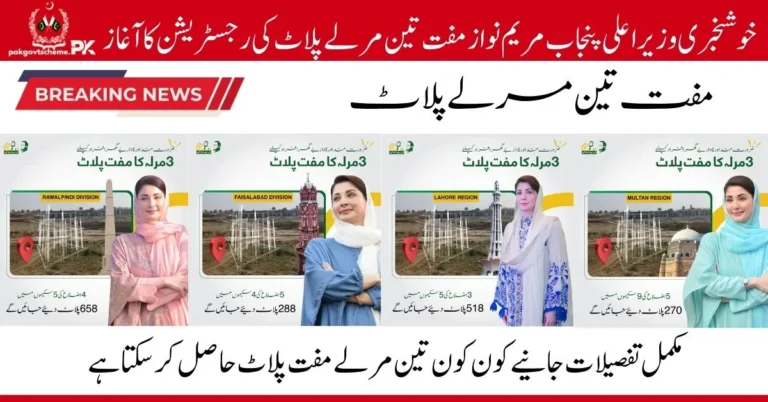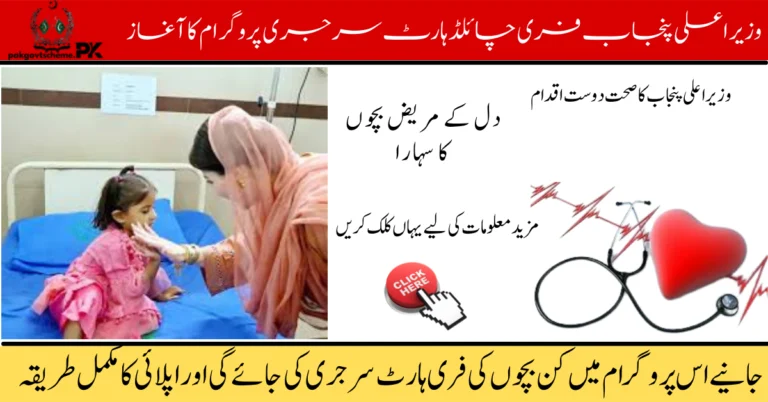Maryam Nawaz Community Health Service Program 2025 – Rs. 12.5 Billion Announced in Punjab Budget 2025–26 Full Details
Maryam Nawaz Community Health Service Program 2025 is a major public health project launched to improve basic healthcare access in Punjab. The Punjab Budget 2025–26 allocated Rs. 12.5 billion to this initiative, marking it as one of the largest community health investments in recent years. The scheme targets rural areas, underserved communities, and urban slums where medical facilities are limited.
This program focuses on community-level care. It includes mobile health clinics, door-to-door visits by trained workers, and support for maternal and child health. By decentralizing services, the government aims to ease pressure on overcrowded hospitals. Most importantly, the initiative ensures free and timely access to preventive and primary care.
Punjab Budget 2025–26 Health Allocation Overview
The Punjab Budget 2025–26 showed a sharp increase in health-related spending. Out of the total health budget, Rs. 12.5 billion is dedicated specifically to the Community Health Service Program. This reflects a clear shift in government priorities from treatment to preventive care and early diagnosis.
A comparison of health budgets from 2023 to 2025 reveals a consistent annual rise. In 2023, the allocation was Rs. 6.8 billion, which rose to Rs. 9.3 billion in 2024. The 2025 figure shows a significant leap, almost doubling the last allocation. This upward trend proves Punjab’s commitment to making healthcare more accessible to all.
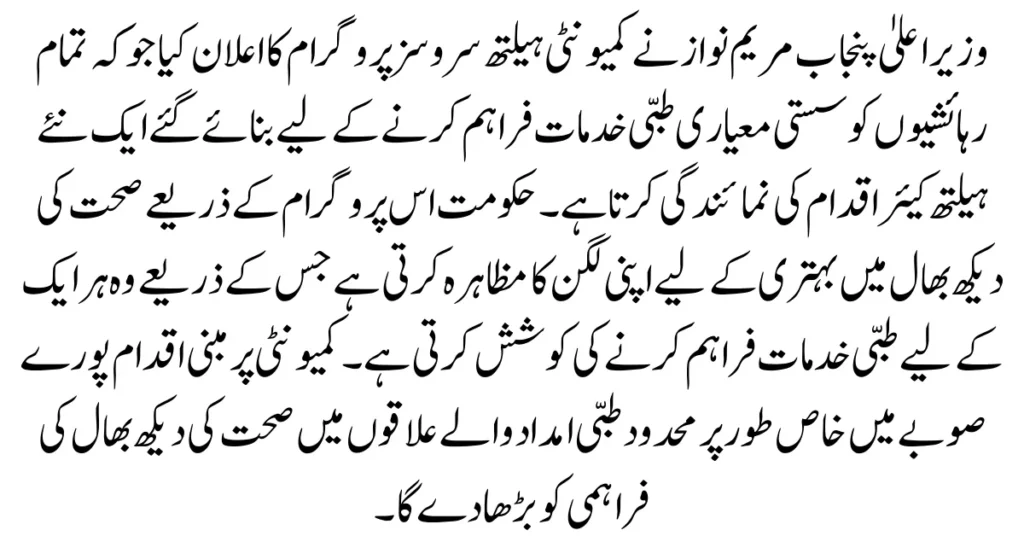
Read More: Punjab Rozgar Scheme 2025 – Full Guide to Easy Loans for Small Businesses
| Year | Allocation (Billion Rs.) | Focus Area |
|---|---|---|
| 2023 | 6.8 | Rural dispensaries |
| 2024 | 9.3 | Urban clinics and diagnostics |
| 2025 | 12.5 | Community-based mobile health units |
Key Features of the Maryam Nawaz Community Health Initiative
A major component of this scheme is the deployment of mobile health vans equipped with diagnostic tools, medicine, and trained staff. These units will reach remote villages and underserved towns where health centers are either far away or non-existent.
Another feature is the Lady Health Worker Program Expansion. New jobs will be created, and existing workers will be trained further. These workers will educate families, offer maternal and child services, and refer serious cases to nearby facilities.
Read More: How to Apply for CM Punjab Free Solar Panel Scheme 2025 – Full Guide
Eligibility and Target Beneficiaries
The Maryam Nawaz Community Health Service Program 2025 targets low-income families, especially women and children. People living in districts with poor health indicators will receive priority. No ID card registration is needed; beneficiaries will be identified through local surveys and existing BISP or Ehsaas program databases.
The initiative is designed to support pregnant women, children under five, and elderly people who cannot travel easily. By focusing on these vulnerable groups, the government aims to reduce disease rates and improve long-term health.
Read More: New BISP 8171 Budget 2025 Announced – How Much Will You Get?
Registration and Access to Free Health Services
To access services under this program, families don’t need to register online or visit government offices. Instead, health workers will visit homes directly. Information will be collected during household surveys, and services will be delivered through community clinics and mobile health vans.
For those living in areas with basic health units (BHUs), trained doctors and nurses will be stationed there under this scheme. Anyone visiting these centers will get free checkups, lab tests, and medicines without paperwork or ID requirements.
Benefits of the Community Health Service Program
The benefits of this program are wide-ranging. It provides free medication, health awareness, disease prevention, and early diagnosis services. People living in isolated areas will no longer have to travel long distances to access a doctor.
Patients will receive treatment for fever, infections, malnutrition, and minor injuries on the spot. In serious cases, the health workers will arrange ambulances or referrals to nearby hospitals. This approach will reduce the pressure on tertiary hospitals and cut waiting times.
Read More: CM Punjab Green Credit Scheme 2025 – Earn Up to Rs 1 Lac for Eco-Friendly Acts!
Government’s Broader Vision for Healthcare in Punjab
This scheme is part of a larger push toward universal healthcare coverage. The Punjab government is also strengthening Sehat Sahulat Cards, upgrading BHUs, and improving hospital infrastructure. These combined efforts are set to transform how people experience public healthcare.
Long-term goals include reducing maternal mortality, preventing outbreaks, and increasing life expectancy in Punjab’s poorest regions. The Maryam Nawaz Community Health Service Program 2025 is the first step in making these goals a reality.
Read More: CM Punjab Maryam Nawaz Launched Digital Payment System for Daily Wages Laborers
Expert Opinions and Public Response
According to Dr. Arif Niazi, a public health specialist, “This kind of mobile-based care delivery can truly change lives if done right.” He praised the focus on community engagement and doorstep services, which reduce access barriers.
People across southern and western Punjab have welcomed the initiative. Stories are already emerging from pilot zones where expecting mothers and chronically ill patients are getting regular follow-ups, which were not available before.
Latest Posts:
- Good News for people Govt rejected 18 percent solar panel tax
- Rs. 3.5 Billion Allocated for Minority Card – Budget 2025–26
- Maryam Nawaz Community Health Service Program 2025 – Rs. 12.5 Billion Announced in Punjab Budget 2025–26 Full Details
- CM Maryam Nawaz Dialysis Program – Full Guide 2025
- CM E-Taxi Scheme 2025 for Women – Full Details & Benefits
Conclusion:
The Maryam Nawaz Community Health Service Program 2025 promises to create a safer, healthier Punjab by reaching families where they live. With Rs. 12.5 billion allocated in the 2025–26 budget, the program sends a strong signal that public health is no longer an afterthought.
This program goes beyond medicine—it’s about hope, prevention, and dignity. By delivering care at the doorstep, the government is rewriting what access means in public healthcare.

